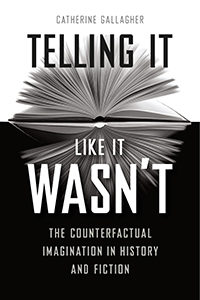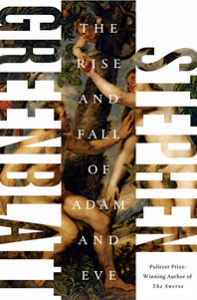
by John Guillory
The essay begins:
The origin of modern prose style was the subject of much scholarly debate in the first half of the twentieth century, but interest in the subject waned thereafter. Today, few scholars other than Restoration specialists or historians of rhetoric are likely to recall the terms of the debate between Morris W. Croll and Richard Foster Jones or their successors. And yet prose style has once again become an important locus of work in literary study, most conspicuously in the new field of digital analysis, which has returned scholarship to some very old concerns of literary history. After decades in which literary study has been dominated by contextual hermeneutics, it seems possible once again to think about literary change in formal terms, as Franco Moretti has notably argued: “For me, formal analysis is the great accomplishment of literary study, and is therefore also what any new approach—quantitative, digital, evolutionary, whatever—must prove itself against.” I would endorse this provocation, and indeed I want to raise the stakes of formal analysis in this essay by taking a step back from the computational project and from the favored object of Moretti’s project—the novel—and look instead at prose itself as the perennial subject of discourse about style. The aim of my argument is to recover a crucial episode in the historical conceptualization of style and thus to restore the emergence of modern prose to its key position in our understanding of English literary history.
The unresolved inquiry begun by Croll and Jones set out from the manifest difference of modern prose from its Renaissance and medieval antecedents. As a subset of language change, the development of prose style has its own set of complex determinations. All prose, let us stipulate, is the sum of stylistic features determined by a familiar set of conceptual operators: form, genre, author, period, literary fashion, and perhaps others as yet unspecified. But prose as such is a purely conceptual entity; it functions as a kind of raw material for composition, seemingly undetermined with regard to content and yet constrained by conventions of grammar and usage. The components of style further limit prose, however difficult these elements are to specify. Croll argued that the emergence of modern English prose style in the later seventeenth century was a result of the anti-Ciceronian movement, which was correlated with a reorientation of the genre system that privileged the forms of essay and treatise over the form of oratory. Jones, by contrast, traced modern prose to a series of polemics emanating from the Royal Society on behalf of the “plain style,” which he saw as directly influencing composition in prose. Although both Croll and Jones grasped aspects of the transformation of prose, their causal hypotheses failed to demonstrate a definitive mechanism of change that would explain the syntax and diction we recognize as modern. I remain agnostic about causal arguments and propose here a different kind of historical hypothesis: New developments in the discourse of prose style betray the recognition of prose avant la lettre as a medium. This recognition was more precisely a misrecognition, in the sense that the “plain style” was understood as a new kind of prose rather than an intuition about the nature of prose itself. Nevertheless, this misrecognition had the perhaps unintended effect of dislodging prose from its immemorial subordination to the system of rhetoric and severing its link to the preeminent genre of oratory. Prose changed when this regulatory regime was lifted, though not necessarily in ways prescribed by the advocates of anti-Ciceronianism or the plain style. Further, composition in prose continued for some time to be described in rhetorical terms, because no other technical lexicon was yet available. The importance of this lexical overhang is a part of the story I mean to tell, and has consequences that extend into the present.
In this story, oratory is more important than narrative. The fact that we never encounter any prose that is not generically or formally marked means that prose is always somewhere behind its manifestations, of which narrative is only one. For this reason, I do not offer here a “prosaics” based on the instance of narrative, which has been the premise of most efforts to construct a theory of prose, from Viktor Shklovsky onwards. Prose was understood in antiquity rather as the complement of verse, which long predated it as a kind of marked speech. If poetry has an obvious signal in the aural form of meter, prose has been strangely harder to define, often yielding to Monsieur Jourdain’s naive apprehension: prose is any speech or writing that is not verse. Yet prose first appeared in ancient Greece in the rarified form of an art—rhetoric—complementary to the art of poetry. The first rhetoricians called the object of their art “persuasive speech.” This speech was obviously different from poetry, but such was the oddity of it that the Greeks could only name it “bare” or “naked” speech (logos gymnos), to indicate the absence of meter. Although the sophists elaborated this bare speech into complex syntactic schemes and figurative modes of expression, it somehow still remained nominally bare speech. The Romans struggled with the same paradox in what they called prosa oratio, “straightforward speech.” Prosa, which gives us our vernacular word prose, is a contraction of pro + vertere, to turn straight forward; prose means speaking “right on,” to quote Shakespeare’s Marc Antony (who, as it happens, is speaking neither forthrightly nor in prose). Eventually the umbilicus to oratory was severed, and prose came to be associated in a special way with the kind of writing that is visually distinct from verse, or written to the margin of the page. But it is not easy to say exactly when this break with oratory was accomplished. Writing in early modernity continued to exhibit what Walter Ong calls an “oral residue” for as long as oratory occupied the highest place in the hierarchy of prose genres.
Scholars have identified several beginnings of prose even after its inception with Greek rhetoric, for example, the one advanced by Jeffrey Kittay and Wlad Godzich in their study, The Emergence of Prose, which locates an origin of prose in the transition to French vernacular writing of the later middle ages. Kittay and Godzich see in this prose an irreversible movement away from the deictic situation of the French jongleurs, who recited (or sang) their vernacular verses, thus rooting their compositions in a single time and place of performance. French narrative prose, by contrast, whether chronicle or fiction, displaced this deixis to a purely “textual space” (116), in which Kittay and Godzich see the appearance of a new “signifying practice” that is highly versatile and pulls together any number of discourses in its web—in short, “the birth of modern prose” (195). That this moment of transition, which is linked to the privileged instance of narrative, fully comprehends the possibilities of prose in modernity seems unlikely to me, although where one stands on this question depends on how one defines modernity. In any correlation of prose with modernity, these two terms will define each other. Still, we can safely say that each emergence of prose enables what follows, and this is the explanatory framework I adopt in this essay. The emergence of prose in the seventeenth century is possibly the last of a series beginning in Greek antiquity—that is, if we are not now on the cusp of a new digital prose. Continue reading …
This essay offers a new interpretation of a longstanding and unresolved controversy concerning the origins of modern prose style. Setting aside causal explanations proposed for the marked changes in prose style during the later seventeenth century, I argue that what emerges in urgent polemics for the “plain style” is a recognition of prose itself as a medium of composition. This intuition about the nature of prose had the unintended effect of liberating prose from its immemorial subordination to the system of rhetoric and opening up new possibilities for its exploitation as a means of communication.
JOHN GUILLORY is Professor of English at New York University. His current work includes a book on the figure of philosophy in Renaissance writing and a study of close reading as “cultural technique.”
 Inventing counterfactual histories is a common pastime of modern day historians, both amateur and professional. We speculate about an America ruled by Jefferson Davis, a Europe that never threw off Hitler, or a second term for JFK. These narratives are often written off as politically inspired fantasy or as pop culture fodder, but in Telling It Like It Wasn’t, Catherine Gallagher takes the history of counterfactual history seriously, pinning it down as an object of dispassionate study. She doesn’t take a moral or normative stand on the practice, but focuses her attention on how it works and to what ends—a quest that takes readers on a fascinating tour of literary and historical criticism.
Inventing counterfactual histories is a common pastime of modern day historians, both amateur and professional. We speculate about an America ruled by Jefferson Davis, a Europe that never threw off Hitler, or a second term for JFK. These narratives are often written off as politically inspired fantasy or as pop culture fodder, but in Telling It Like It Wasn’t, Catherine Gallagher takes the history of counterfactual history seriously, pinning it down as an object of dispassionate study. She doesn’t take a moral or normative stand on the practice, but focuses her attention on how it works and to what ends—a quest that takes readers on a fascinating tour of literary and historical criticism. Catherine Gallagher is professor emerita of English at the University of California, Berkeley, and a founding member of the Representations editorial board. She is the author of many books, including The Body Economic: Life, Death, and Sensation in Political Economy and the Victorian Novel.
Catherine Gallagher is professor emerita of English at the University of California, Berkeley, and a founding member of the Representations editorial board. She is the author of many books, including The Body Economic: Life, Death, and Sensation in Political Economy and the Victorian Novel.
 The Rise and Fall of Adam and Eve explores the enduring story of humanity’s first parents.
The Rise and Fall of Adam and Eve explores the enduring story of humanity’s first parents.

